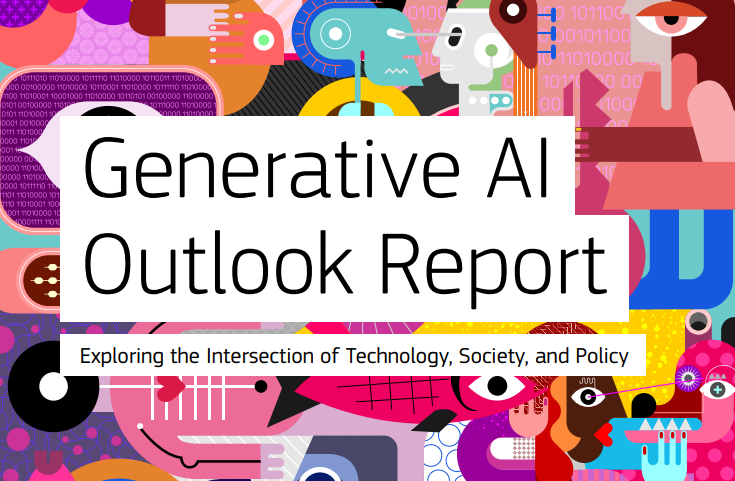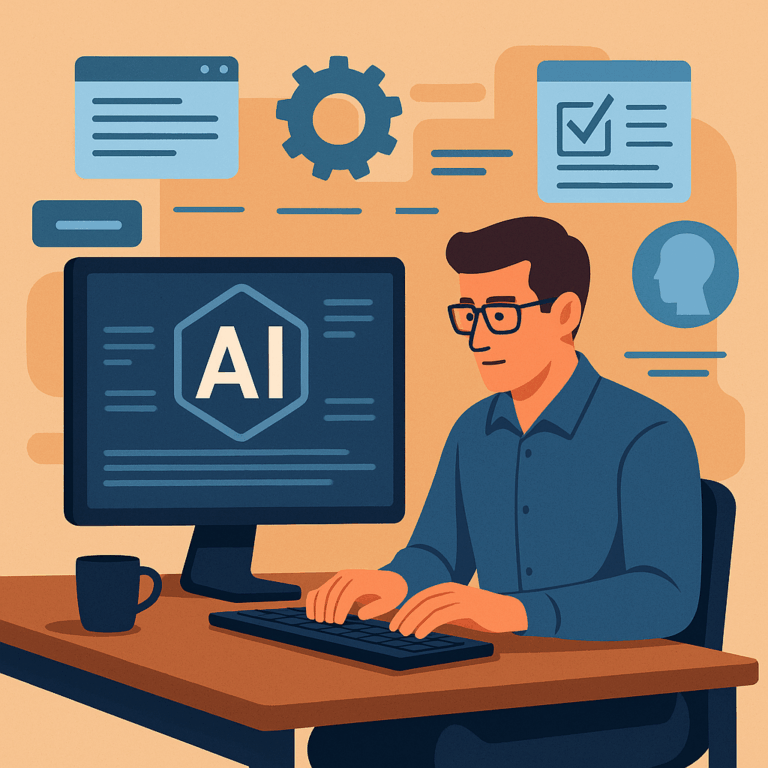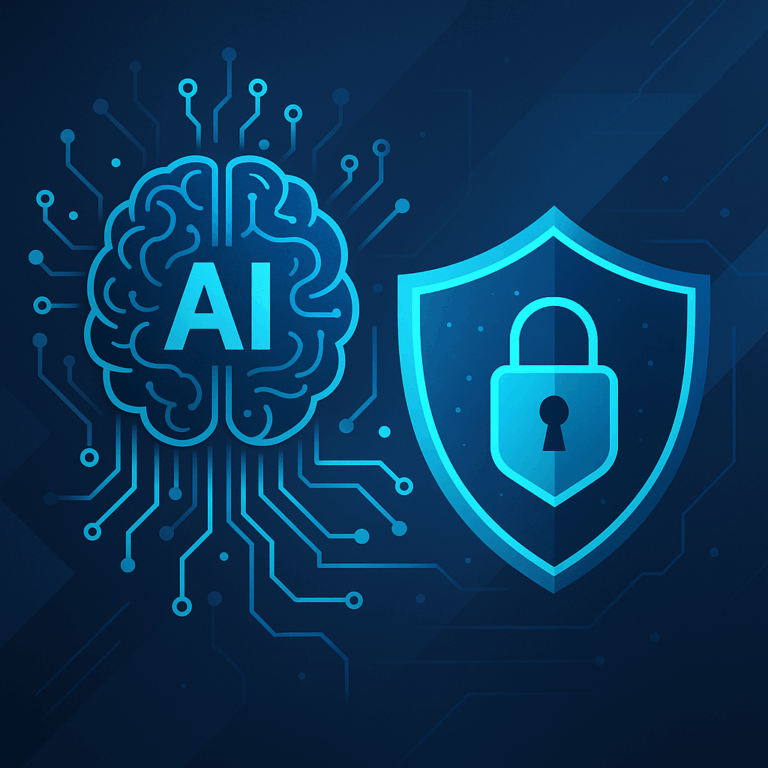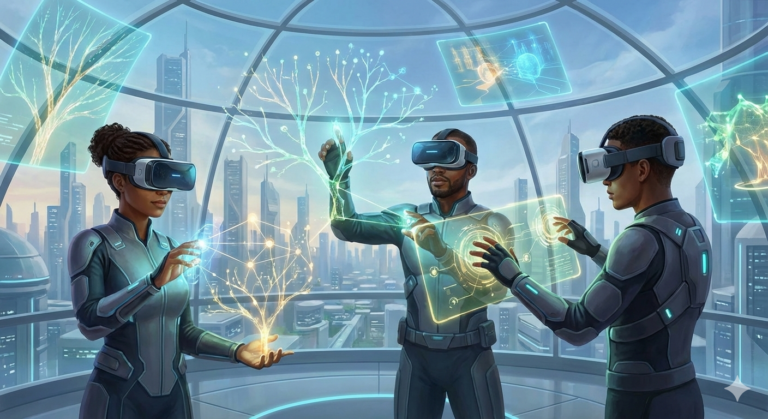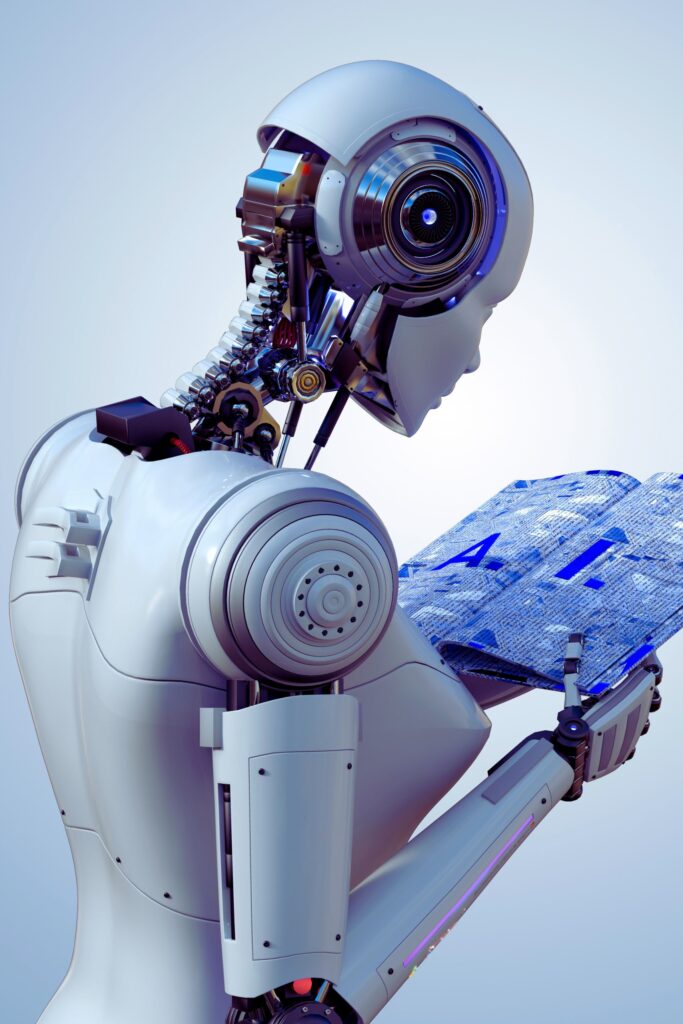EU-raportti korostaa taitojen ja koulutuksen kiireellistä roolia Euroopan digitaalisessa tulevaisuudessa
Uusi raportti Euroopan komission yhteinen tutkimuskeskus (JRC) otsikolla ”Tulevaisuuden taidot: koulutuksen rooli digitaalisen siirtymän muokkaamisessa” hahmotellaan Euroopan väestön osaamisen kehittämisen ja uudelleenkouluttamisen kriittistä merkitystä nopeasti kehittyvän digitaalitalouden vaatimusten täyttämiseksi. Näihin vaatimuksiin pyritään vastaamaan lukuisilla hankkeilla, kuten GenAISA:lla, mutta institutionaalisesti ja organisatorisesti on vielä paljon tehtävää.
Raportin konteksti
JRC:n tutkimus tarjoaa kattavan analyysin nykyisistä digitaalisten taitojen puutteista eri puolilla Eurooppaa ja tarkastelee, miten koulutusjärjestelmät voivat mukautua tukemaan kaksoissiirtymiä: digitaalinen ja vihreäSe korostaa, että digitaalinen transformaatio muokkaa työrooleja, luo täysin uusia ammatteja ja vaatii uudelleen keskittymistä monialaisiin, pehmeisiin ja edistyneisiin teknisiin taitoihin.
Keskeiset havainnot
1. Digitaaliset taidot uutena lukutaitona
Raportissa korostetaan, että digitaalinen osaaminen ei ole enää valinnaista – se on ydinosaamista. Tiedon navigoinnista tekoälytyökalujen käyttöön, digitaalinen osaaminen on välttämätöntä täysipainoiselle osallistumiselle yhteiskuntaan ja työelämään. Monilta eurooppalaisilta kuitenkin puuttuu edelleen edes digitaaliset perustaidot, mikä luo kuilun, joka uhkaa syrjäyttää merkittävän osan väestöstä.
2. Edistyneiden ja hybridiosaamisen kysyntä
Kysytyimmät taidot eivät rajoitu vain ICT-ammattilaisiin. Raportissa korostetaan kysynnän kasvua edistyneet digitaaliset taidot – erityisesti tekoälyn, data-analytiikan, kyberturvallisuuden ja pilvipalveluiden aloilla – yhdistettynä laaja-alaisiin osaamisiin kuten ongelmanratkaisu, yhteistyö ja kriittinen ajattelu. Tämä trendi tukee GenAISAn integroitua lähestymistapaa sekä tekninen ja resilienssitaidot modulaarisen, haasteisiin perustuvan oppimisen kautta.
3. Virallisten koulutusjärjestelmien aukot
Vaikka digitaaliset teknologiat kehittyvät nopeasti, viralliset koulutusjärjestelmät ovat jäljessäOpetussuunnitelmat eivät usein heijasta innovaatioiden nopeutta, ja monet opettajat raportoivat riittämättömästä tuesta digitaalisten aineiden tehokkaaseen opettamiseen. Raportissa vaaditaan:
- Opetussuunnitelman modernisointi koulutustasoilla
- Investoinnit opettajankoulutukseen ja digitaalisiin työkaluihin
- Vahvemmat kumppanuudet koulutuksen ja teollisuuden välillä merkityksellisyyden varmistamiseksi
GenAISA vastaa näihin haasteisiin luomalla koulutusmateriaaleja yhdessä yliopistojen, ammatillisten oppilaitosten ja digitaalisen alan kumppaneiden kanssa.
4. Elinikäinen oppiminen digitaalisen resilienssin kulmakivenä
Digitaalinen siirtymä edellyttää työntekijöiltä kouluttautua uudelleen ja kehittää osaamistaan useita kertoja koko uransa ajan. Yhteinen tutkimuskeskus korostaa elinikäisen oppimisen ekosysteemit, joustava pääsy koulutukseen ja epävirallisen oppimisen tunnustaminen – visio, jota GenAISA tukee avoimen MOOC-alustansa kautta ja Digitaalisten taitojen passi mikro-sertifiointia varten.
5. Ammatillisen koulutuksen kasvava rooli
Ammatilliset koulutusjärjestelmät ovat erityisen hyvässä asemassa tarjoamaan nopeaa ja osaamiskeskeistä koulutusta uusiin teknologioihin. Raportissa kuitenkin todetaan tarve Ammatillisen koulutuksen modernisointi, erityisesti tekoälyn osalta. GenAISA vastaa suoraan tähän kuiluun suunnittelemalla ammatillisen koulutuksen opiskelijoille tarkoitettu generatiivisen tekoälyn kurssi, joka perustuu tosielämän sovelluksiin.
6. Osallisuus, sukupuolten tasa-arvo ja alueelliset erot
Digitaalisen transformaation riskit voimistaa olemassa olevia eriarvoisuuksiaNaiset, ikääntyneet aikuiset ja maaseudun asukkaat ovat edelleen aliedustettuina digitaalisen osaamisen kehittämisen aloitteissa. Raportissa korostetaan osallistavien strategioiden tarvetta sen varmistamiseksi, ettei kukaan jää jälkeen. GenAISA perustuu sitoutumiseen saavutettavuus ja monimuotoisuus, tarjoamalla koulutusmateriaaleja useilla kielillä ja kohdistamalla ne aliedustettuihin ryhmiin tekoälykoulutuksessa.
Miksi tämä on tärkeää GenAISAlle
JRC:n raportti vahvistaa ja vahvistaa GenAISA-hankkeen suuntaa:
- Se vahvistaa tarpeen räätälöidyt opetussuunnitelmat korkeakoulutuksessa ja ammatillisessa koulutuksessa, erityisesti kehittyvillä aloilla, kuten generatiivisella tekoälyllä.
- Se korostaa joustavat, modulaariset oppimismuodot ja mikrotunnisteet, jota GenAISA tarjoaa MOOC-kurssien ja digitaalisen osaamispassin kautta.
- Se on linjassa GenAISAn kanssa monisidosryhmämalli, joka kuroa umpeen kuilua oppilaitosten, teollisuuden tarpeiden ja kehittyvien työroolien välillä.
Lue koko raportti
Jos haluat perehtyä EU:n strategiseen visioon digitaalisista taidoista, voit lukea koko JRC:n raportin täältä:
https://publications.jrc.ec.europa.eu/repository/handle/JRC142598
